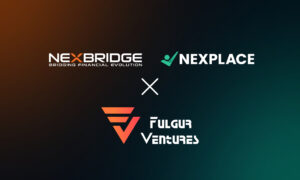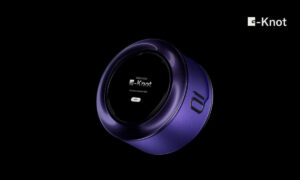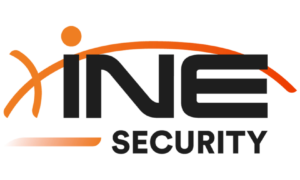The current contracting system and documentation are a mess that can be difficult to navigate and create successful deals. If you want to do safe bitcoin trading, then use Bitcode Method trading software. The platform has features like high compatibility with all devices, a massive range of trading tools, and many more. Blockchain has changed how people view transactions, helping create trust between counterparties to make contracting easier and more efficient in a digital environment.
Blockchain has helped reshape global trade relationships into more transparent contracts, making it easier for organizations to succeed with more efficiency. This new contract framework allows for better information tracking from one party to another, reducing overhead costs and increasing transparency. In addition, Blockchain benefits different parties involved in supply chain relationships, depending on the needs and capabilities of each.
Cross-functional efforts are needed to continue to create a more efficient and cost-effective blockchain framework. Modern software development has made it easier to collaborate across different departments; however, the challenges with blockchain technology and its implementation require much more than a few people with knowledge of the technology and program design. In short, Blockchain is too hard, and such projects should be left solely for smaller organizations focused on specific areas of blockchain development or use cases.
Too many organizations have fallen prey to companies selling off ICOs that promise high returns on investment. However, with poor market conditions, it’s vital to ensure that blockchain projects have a realistic chance of success. In addition, having in-house teams ensures a greater understanding of blockchain technology, its many nuances, and how it can be implemented by people properly.
For Blockchain to get into action, a collaborative effort is required:
Organizations must invest more in research and development to continue innovation in the industry, especially when new technologies require much more than just funds to get off the ground. Many companies cannot collaborate or work with outside sources because they lack access to the necessary tools and expertise needed to improve blockchain integration into business operations.
A more collaborative effort is needed to implement Blockchain into business processes. Many companies claim they will be blockchain experts if they implement decentralized networks and cryptocurrencies. A few companies have successfully created a sandbox environment to test blockchain applications and have had great results. Too often, however, companies are over-hyping the benefits of blockchain technology and trying to survive with only limited resources on hand.
The next few years will hopefully see greater adoption of blockchain technology, moving from pilots and testing in the early stages of development toward greater collaboration between different industries using blockchain applications.
How has Blockchain revolutionized the contract system?
Self-execution of contracts:
Blockchain-based contracts are executed by self-execution, which is more efficient and cost-effective. With Blockchain, organizations don’t have to worry about third parties who traditionally hold up transactions and accountability. Also, due to Blockchain’s increased transparency, there will be no more middlemen taking a significant percentage of transaction fees but providing little value to the end customer. With the self-execution of contracts, the suppliers and customers can trust each other’s performance much more quickly.
Storing contact information:
Contracts are stored on the Blockchain; once contract terms are met or expired, terms are executed as they please. With this technology, there is no need to constantly update contracts and manage the process of renewing them, as they can all be done online with Blockchain.
With blockchain technology, end customers in different countries face a lot of challenges when it comes to payments and contract enforcement. As a result, a faster payment system and the self-execution of contracts are being introduced.
With faster payment systems in place, it will enable global trade to increase significantly, which has been one of the biggest challenges for international trade. Self-execution of contracts ensures that efficiency and cost-effectiveness are in place for traders and customers internationally. The use cases for Blockchain are expected to expand over time as people understand and accept the technology more fully.
Unforgeable and Unalterable contracts:
Self-execution of contracts is possible because contracts are automated and executed automatically by the blockchain network. As a result, blockchain technology reduces costs and friction points within the trade industry. A blockchain system is compatible with digital signature certificates and makes it possible to analyze the authenticity of a transaction. Compared to complicated financial agreements, blockchain-based contracts are more transparent and secure.
In Blockchain, everyone can see transactions yet are protected with private encryption keys. It is possible to prove that a transaction happened while keeping personal information private. Furthermore, a contract on a blockchain network cannot be changed or influenced by any third party. As a result, it becomes easier for traders to track the status of their shipments from one place and eliminate redundant communication between different parties involved in the shipping process.
The lack of transparency in past transactions has created room for corruption and long-term trust issues between parties involved in the contract process. Blockchain solutions provide stakeholders with a greater sense of accountability for one another without having to pay mind to third parties who often take a large percentage of transaction fees but provide little value to the end customer or trader involved in the trade process on an international scale.
Digitization of contracts:
Blockchain technology enables the digitization of contracts. For example, in the shipping industry, it’s often difficult to find out the exact location of shipments and track the history of a specific shipment. The use cases for Blockchain are expected to expand over time as people understand and accept the technology more fully. The usefulness of blockchain solutions is apparent; however, as a technology with so many benefits becomes more widespread, there will be a greater need for blockchain experts with expertise in different fields, such as finance and data management, to implement it successfully into everyday business operations.
Disclaimer: This is sponsored marketing content. The presented material by no means represents any financial advice or promotion. Be sure to do your own research and acknowledge the possible risks before using the service of any cryptocurrency platform.



































